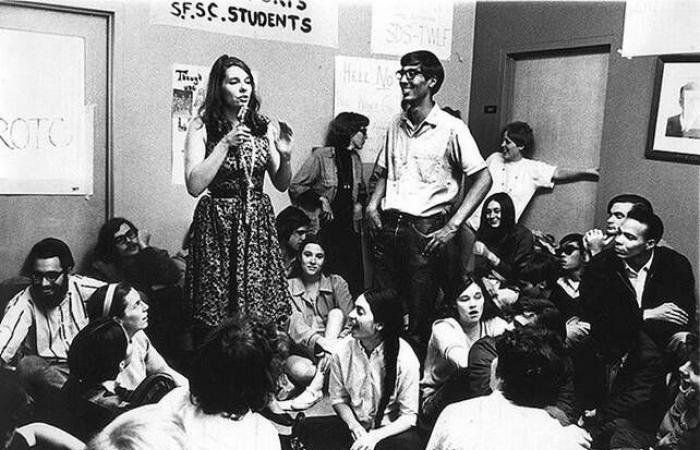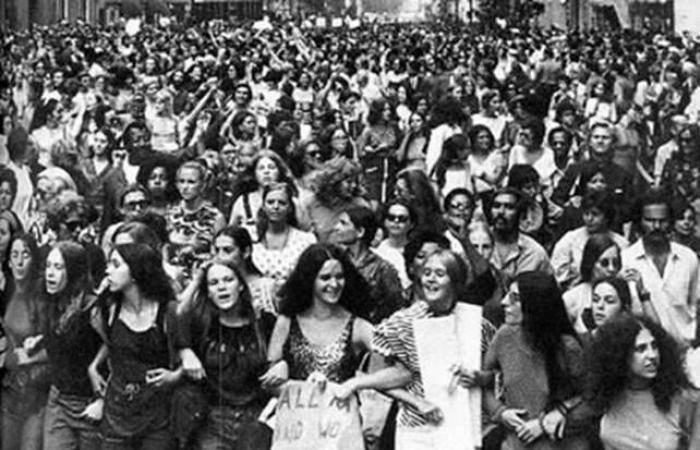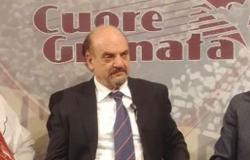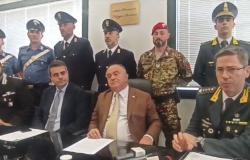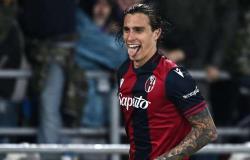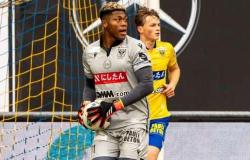The twenty-five stab wounds that killed Christopher Thomas Luciani last Sunday in a park a few steps from the Pescara seafront were not inflicted to recover a debt of just 240 euros. No, the reason why two sixteen-year-olds killed one of their peers is different. The judge who ordered the two boys to be sent to prison summed it up like this: they wanted to “cause suffering and kill a human being”. They wanted to “cause suffering and death”. After a few minutes, the two suspects went for a swim. A photo was taken at the beach, not even an hour after the crime. One of the two suspects can be seen posing on the beach: a proud look and a closed fist on his chest. A selfie after the murder, after having made “joking and mocking jokes towards the victim” together with his accomplice, as a witness will say. The whole group, both the boys who would later report and those who remained silent, knew that Thomas’s body was still in the undergrowth, but “we went to the beach peacefully,” they explain. “We didn’t think of calling anyone, neither the police nor the ambulance,” is their story. No one lifted a finger. The surveillance cameras recorded everything. The Tik Toks of the suspects and the boys who witnessed the murder are shocking: drugs, alcohol, daggers, insults to the homeless…
Why this total absence of humanity?
Historian Filippo Boni wrote:
“Until twenty years ago, children were the children of parents who grew up in an Italy still influenced by the impetus of post-war reconstruction and later crossed by the ferment of protest, in which, despite deformations and bitter clashes, certain values were a shared heritage, which acted strongly on the collective conscience.
Today the parents of the children were educated in a twenty-year period which, as archetypes, had careerism and individualism, in which having has always prevailed over being, in which mere material well-being must be achieved by any means and certainly this too affects teenagers’ vision of the reality around them. If being dies and having prevails, then the body wins over the soul and becomes only a tool for enriching oneself, annihilating any sense of humanity, degraded by a social world that always seems to provide immediate answers and above all propose false examples”.
Children are no longer taught to fight to alleviate the pain of the weak in the world, but to dominate others, to appear richer and more powerful. So, in a materialistic and selfish approach to life, it can become normal to stab a boy to death and then go to the beach and feel sorry for yourself.
Last Wednesday, during the presentation of the book “Tra utopia e realismo. Notes on ’68”, there was no shortage of accents of radical pessimism. In my speech I captured all the reasons. But I remembered that in 1964 the historian Giuliano Procacci concluded his beautiful “History of the Italians” by bitterly describing “a pleasure-loving and vulgar Italy”. And yet, only a few years later, the boys returned to longing for the stars and fighting for a new meaning in life. To think about the soul and not just the body. To have passion for the future and for others.
The boys of ’68 wrote:
“The bourgeois revolution was juridical, the proletarian revolution was economic. Ours will be social and cultural. So that man can become himself.”
It’s still:
“The notion of generational conflict must disappear from the world; it is nothing but a counterfeit of the struggle for power. Let the ‘fathers’ play their role as ‘fathers’, and the revolution will be a revolution.”
We need to play the role of “fathers”: it doesn’t mean making sure our children lack nothing and indulging the idiocies of influencers, but cultivating the souls of kids by teaching empathy towards others, love, solidarity, peace.
It is very difficult to do so in this terrible time of violence and war. Colonel Kurtz, in “Hearts of Darkness” by Joseph Conrad, said “that we must have men capable of using their primal instincts to kill without emotion, without passion, without discernment”. Because “horror has a face and we must be friends with horror”. No, we must fight horror with all our strength and reverse the trend. Thomas’s tortured body speaks to us and asks us not to look the other way. Not to stop searching for a new humanism.
After written
The Honorable Andrea Orlando sent me, after last Sunday’s article, the texts regarding two of his initiatives against gangmastering in agriculture and in the La Spezia nautical industry. Good. We owe it to another tortured body that speaks to us: that of Satnam, a slave abandoned on the ground, dead in the company of his amputated arm.
Student demonstration in the United States of America, 1968 (Giorgio Pagano Archive)

